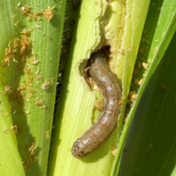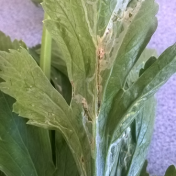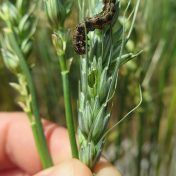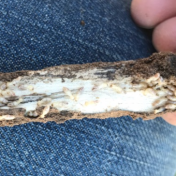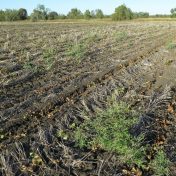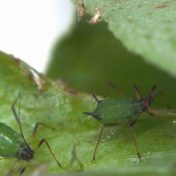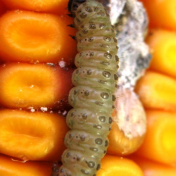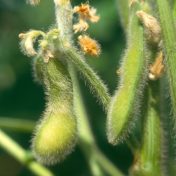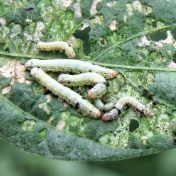Fall armyworm (FAW) are still active across the Northern Grains Region, but inland Central and Southern Queensland have not experienced continuous population build up in crops since the first immigration of moths in September–October. One of the major contributors to this continuing low pressure is probably the very high natural enemy (beneficial) impact on FAW. A number of very common… Read more »
Another exotic leaf-mining fly, the serpentine leafminer (SLM; Liriomyza huidobrensis), also known as pea leafminer or South American leafminer, has recently been found in commercial vegetable crops (celery and green beans) in the Fassifern Valley (90 km south-west of Brisbane). This follows its previous detection in western Sydney in early November. The national plant pest and disease incursions technical committee… Read more »
Helicoverpa outbreaks in wheat are relatively rare events. The last big outbreak, in 2016, was the first significant event for several decades, so treating helicoverpa in wheat is not something that many agronomists are familiar with. However, 2020 looks to be a year when helicoverpa infestations in some crops may warrant control. Wet winters are well correlated with outbreaks of… Read more »
Termites are common in undisturbed parts of the landscape, playing an important role in the ecosystem. It is unusual to find them in crops—but in 2020, there have been several reports of termites in winter cereals. The first reports were received during crop establishment, and more were received once the crops started to come out in head and set grain…. Read more »
Key points: There was a resurgence in tobacco streak virus (TSV) disease in mungbeans in early 2020 TSV is restricted to central QLD and closely related to the distribution of parthenium weed Growers are encouraged to avoid areas of dense parthenium to reduce risk In autumn of 2020, tobacco streak virus (TSV) was found to be common in all mungbean… Read more »
Faba bean aphid (FBA, Megoura crassicauda) was first noted in Australia on broad beans (Vicia faba L. cv. Coles Early Dwarf) in October 2016 in a Sydney suburb, (Hales et al., 2017). FBA was then recorded in September 2017 at two faba bean trial sites: NSW DPI Tamworth Agricultural Institute (TAI) and Liverpool Plains Field Station Breeza (LPFS Breeza). These… Read more »
Recent reports were received of decidedly non-armyworm looking caterpillars attacking corn cobs in a crop near Mundubbera. The larvae in question were pale with lines of large dark spots on their back, and looked very similar to a serious mungbean pest, beanpodborer (Maruca vitrata). However, the larvae in question were slightly larger (about 20 mm) and some had a slight… Read more »
As the summer cropping season winds down, there are some key observations in pulse crops made by leading consultants from New South Wales’s Northern Rivers and Queensland’s Hervey Bay regions that haven’t been covered in recent Beatsheet articles. 1: Indoxacarb failures linked to poor coverage The high Helicoverpa pressure encountered this summer resulted in many indoxacarb (e.g. Steward®) sprays being… Read more »
With a range of pest outbreaks recently (including fall armyworm), and the issuing of several new permits in Australia, there has been some confusion as to whether pulse crop references on spray labels and permits in Australia include soybeans. The good news is that the answer is yes it certainly does! Soybeans are listed by the APVMA under Crop Group… Read more »
Update (20 April): There are reports that cluster caterpillars are also switching from leaf to pod feeding in maturing crops in the Mackay region, with a report of 5-10 larvae per square metre in many crops. Growers and consultants in all coastal regions are urged to check their crops for late season cluster caterpillars. Reports have just come to hand… Read more »
